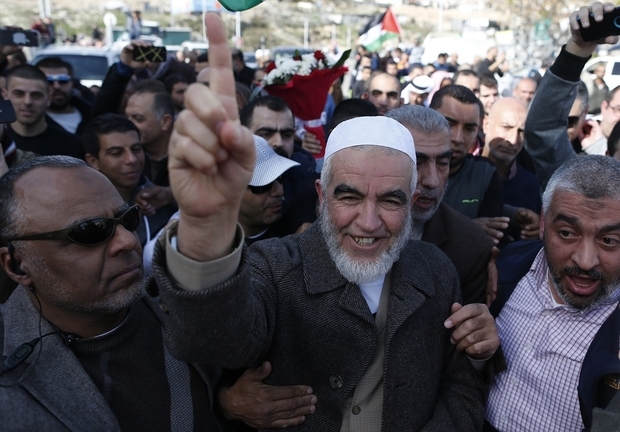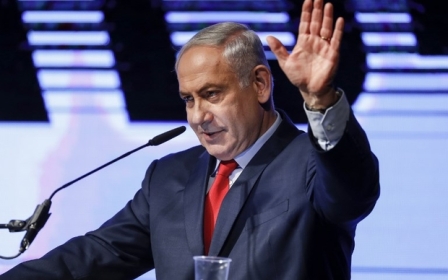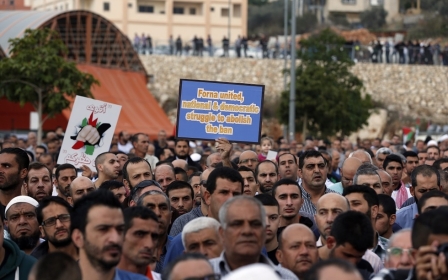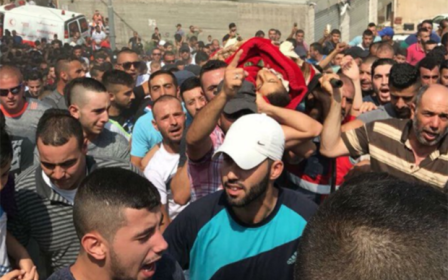Raed Saleh charged with incitement linked to unrest in East Jerusalem

An Israeli court had charged Raed Saleh, a prominent Palestinian cleric, with incitement to terrorism, the justice ministry said.
The charge was given in connection with the deadly unrest that rocked East Jerusalem last month after Israel installed metal detectors at the entrances to Haram al-Sharif, which houses al-Aqsa mosque and the Dome of the Rock.
Saleh's group, the northern branch of the Islamic Movement in Israel, was outlawed in 2015 for incitement linked to al-Aqsa mosque.
The statement alleged that he issued "expressions of praise, sympathy or encouragement for an act of terrorism" on various occasions.
His alleged statements were made against "a special security background" in the wake of a July 14 attack in which three Israeli Arabs from Salah's hometown of Umm al-Fahm killed two policemen after emerging from the holy compound, in Israeli-annexed east Jerusalem.
The attackers were themselves shot dead by other officers.
The justice ministry quoted the charge sheet as saying Salah's statements were made at the Umm al-Fahm funeral of the assailants and in two sermons he delivered at Friday Muslim prayers in Umm al-Fahm, in northern Israel.
It said that the funeral was attended by thousands, some of them masked and chanting pledges to the dead attackers to "continue in your path".
It did not specify Salah's comments there.
Salah's lawyers and supporters say his sermons are always within the bounds of free speech and that he "stands against the murder of innocents".
They have called the 58-year-old preacher's arrest political intimidation and say it was intended to silence dissent.
Israel responded to the July 14 attack by installing metal detectors and other security equipment at the entrance, but that triggered days of peaceful protests by Palestinians.
The Islamic Waqf, a body that governs the Al-Aqsa mosque compound, also called for Palestinians to boycott the holy site.
Violent clashes between Israeli police and Palestinian protesters had left seven Palestinians dead.
As the unrest raged, a Palestinian broke into a home in a Jewish settlement in the occupied West Bank and stabbed four Israelis, killing three.
The crisis ended when Israel removed the security devices at the site, which includes the revered al-Aqsa mosque and the Dome of the Rock.
Salah's arrest on August 15 followed his release from prison in January after serving a nine-month sentence on similar charges.
The holy site in the Old City is the third-holiest in Islam and the most sacred for Jews. It is the scene of regular confrontations between the two groups.
New MEE newsletter: Jerusalem Dispatch
Sign up to get the latest insights and analysis on Israel-Palestine, alongside Turkey Unpacked and other MEE newsletters
Middle East Eye delivers independent and unrivalled coverage and analysis of the Middle East, North Africa and beyond. To learn more about republishing this content and the associated fees, please fill out this form. More about MEE can be found here.




